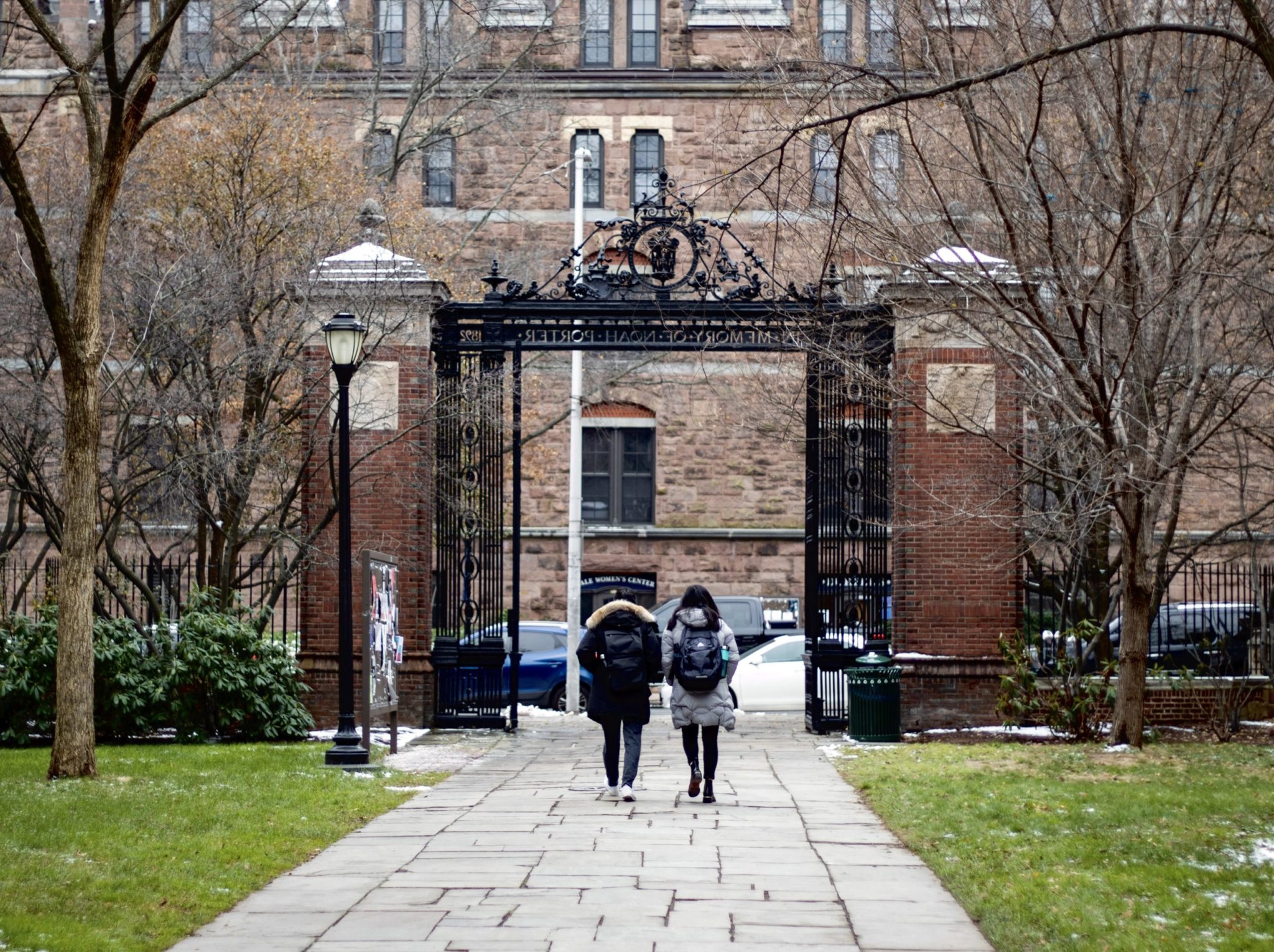
Jessie Cheung
Four years down the road, Yale can still be an intimidating place. The people you meet here are gifted at such an astonishing range of activities. It is easy to feel out of your comfort zone quickly, even at things you might otherwise consider yourself accomplished at. The people here make it a place like no other.
A large part of the intimidation many of us feel at Yale comes down to the formal and informal hierarchies that we construct for ourselves here: Yale often seems to be — and indeed, often is — a sequence of step ladders. Take, for example, roles in extracurricular organizations, career attainments, academic distinctions and even social circles.
People create step ladders because they are an easy way to find order in chaos. First years quickly come to understand that there is an established route to that coveted internship, to that prestigious leadership position, and to that exclusive social group. “You do X, and then Y, and then Z, and then — and only then — will you receive whatever you sought in the first place.”
It should not be like this. Deferring happiness is seldom the right choice in life. It most certainly does not bring happiness in the long run. But so often, students at Yale are under pressure to trade short-term happiness for promised long-term material benefits. It is one thing if you enjoy each step of the way up the ladder; it is another if you are coping with the present in anticipation of a better future. Many at Yale resist this pressure admirably. Nevertheless, many still get lost in the scramble uphill.
The long and short of this is: for all of its make-your-own-adventure trappings, Yale can be a very focused and careerist place. It often seems like most people have figured “it” out. That image, both in popular culture and within Yale, is largely influenced by the stereotype of a typical Yale student. There is an expectation that students at this university have a clear plan for their studies and life. Indeed, we glorify people who have such a plan and discourage others from roaming rudderless after their first year. Being oriented towards a particular set of goals is not necessarily a bad thing; rather, when that orientation supersedes the rest of your life, you should reconsider the sacrifice you are making.
The apologist C.S. Lewis, in an essay on this topic, wrote that “to a young person, just entering adult life, the world seems full of ‘Insides,’ full of delightful intimacies and confidentialities, and [they] desire to enter them. But if [they] follow that desire [they] will reach no ‘inside’ that is worth reaching.” These are words especially salient at Yale. They are so easy to forget. When we are tempted to climb to the next rung on the ladder, these words should prompt us to question ourselves. Why are we doing what we are doing? Is it because of its intrinsic worth? Or is it just a means to another end?
After all, the whole idea of a liberal arts education, and of Yale, is not direction towards a specific goal. We forget that all too often. At Yale, we ought to encourage those who wander, those who try different things. We should celebrate not only those who explore freely at the beginning of their collegiate careers but also those who wander until the very end – and those who continue wander after Yale. The opportunity to explore, to grow and to search for your purpose in life — that is the real beauty both of Yale and of life. When you get right down to it, life — like Yale — is not a step ladder. We should never mistake it as such.
Keshav Raghavan is a graduating senior in Pauli Murray College. He was City Editor and Copy Editor of the News for the 2019-2020 school year. Contact him at keshav.raghavan@yale.edu.







